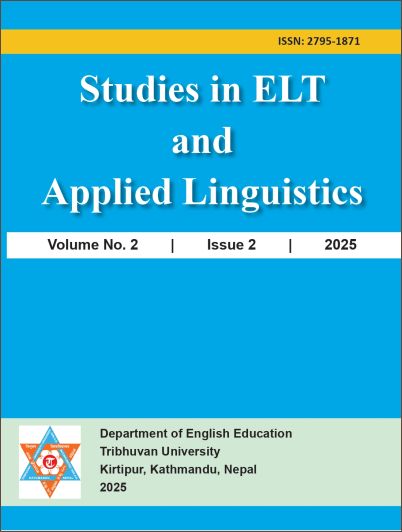Embedded Globalism and Discourse of Minority Identity in Texts of Secondary School English Textbook
DOI:
https://doi.org/10.3126/seltal.v2i2.74086Keywords:
Power, ideology, cultural dislocation, hegemony, constructsAbstract
In today’s globalized world, where cultural boundaries blur and communication spans diverse linguistic and social contexts, the function of language and literature is changing. Language is no longer a simple communication tool but a social fact. It goes beyond mere linguistic competence. Language use is a social construct in wider socio-political contexts. The research paper on “Embedded Globalism and Discourse of Minority Identity in English Textbook of Secondary Level” uncovers implicit power structures between power holders and oppressed groups. The term ‘Globalism’ refers to the process in which local people are influenced by global culture, products and media. It not only includes economic and social changes but also has cultural dislocations and devastations that have travelled at great speed. Literature, as a reflection of society, depicts intricate narratives, ideologies, and cultural dislocation. Through CDA, literary texts can be deconstructed to reveal the implicit power structures, cultural biases, and hegemony. Thus, language teaching becomes a major guideline to dissect power abuse, encouraging students to question the cultural biasness and underlying power relation. This study is mainly centered in the secondary school literary texts like Anita Desain’s story “A Devoted Son”, Abhi Subedi’s poem “Soft Storm” and Languston Hughes’s poem “Madam and Her Madam.” While analyzing the texts, I have applied Fairclough’s model of discourse analysis to explore the hidden power relation. Such an approach uncovers implicit social inequality, power relationships and injustice ensuring students a more inclusive, interdisciplinary and multicultural understanding of global society in the global contexts.




